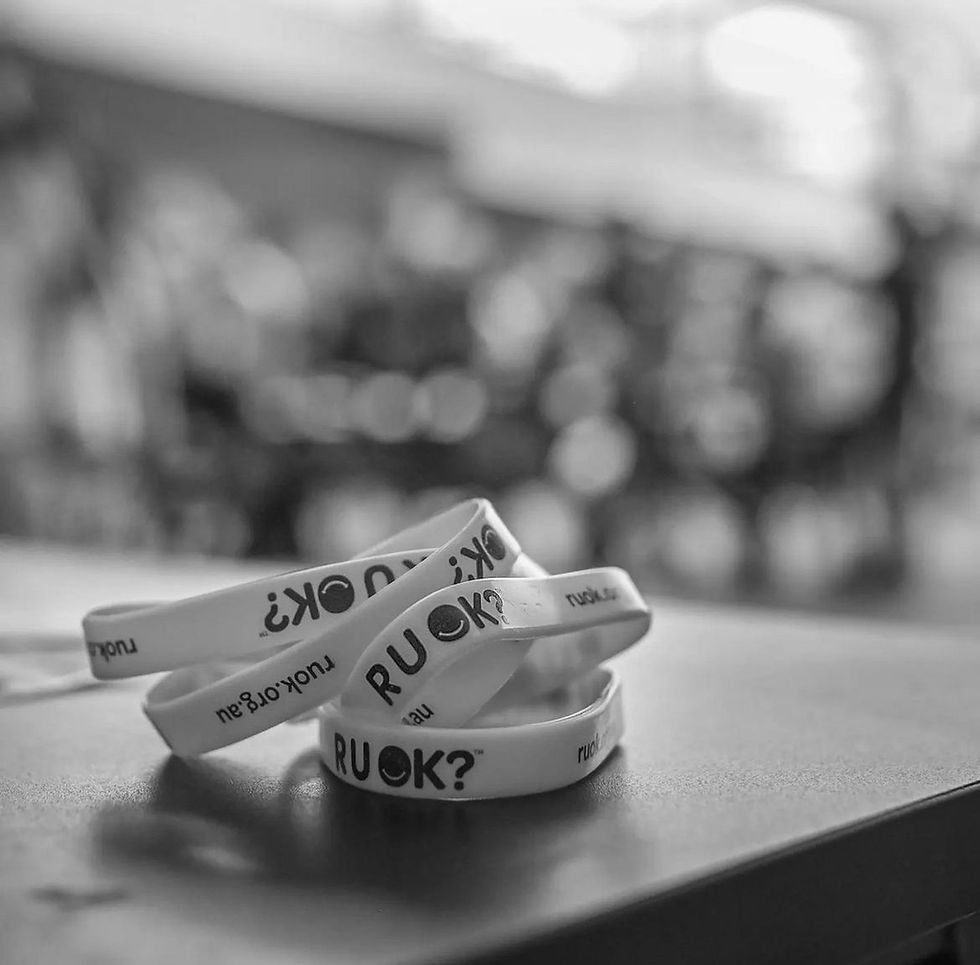RUOK Day: Why Mental Health Stigma Won't Leave the Community
- Anonymous
- Feb 14, 2023
- 3 min read
Updated: Feb 16, 2023

By: Anonymous
UWCSEA has an incredible group of counsellors dedicated to protecting and helping students, as well as a motivated body of students in the Peer Ambassadors working towards destigmatizing mental health issues and promoting open discussion. While these are the groups that most students see frequently, these are by no means the full extent of the mental health movement at UWC. Unfortunately, their efforts are undercut by a persistent culture of toxic strength and independence at school/on campus. While being independent is potentially a good thing, a harmful need for it has arisen, causing students to believe that depending on anyone is negative. Someone who needs help or asks for help may be called a ‘wuss’ or a ‘pussy’. Many in our community still see mental health as an untouchable topic and believe that anyone struggling with a mental health issue is weak. To ask for help is seen as an admission of defeat, and anyone who does is regarded as a ‘loser’.
This attitude has, however, worsened recently in terms of its outward manifestations. Previously, people would simply not speak of mental health. Today, people use those who struggle with mental health as the butt of their jokes and poke fun at the counsellors as ‘fads’ or ‘snitches’ who spill your secrets to teachers or parents. It would certainly not be fair to say that all students act in this way. The number of students who do, though, is enough for peer pressure to stack up, influencing the way in which others think. These add up to students not being open about emotions, and failing to seek help from the counsellors when needed.
This outward perception means that movements like RUOK Day are jokes, at least within the UWC sphere. The fundamental idea of destigmatising mental health is a valid one. The Peer Ambassadors and counsellors are without a doubt successful in breaking down some myths about mental health, such as that it is uncommon or a sickness, but are unable to remove the stigma around it. For those who struggle to reach out, understanding that they are not attention-seeking does little to bridge the gap between a supporting friend or adult. So long as students fear ridicule or lack faith in ‘the system’ to protect them and their information, the gap between students and the help they need will exist, and so RUOK Day fails to make any meaningful change.
What this boils down to is that efforts from staff and students are not lacklustre, but fail to involve tangible action against a harmful pre-existing culture. This issue is campus-wide and one teacher or a few students is unlikely to make a difference. Instead, the responsibility lies with leadership to identify and correct trends. No matter how many times our Heads of Grades stand on the stage during assembly and remind us that the school has counsellors, no matter how many RUOK Days come and go, the culture of stigma will not disappear and people will not reach out for help because of it. The school leadership needs to do some serious thinking on how to shift this culture and how to make school a more inclusive place for those struggling with mental health at any point along their school journey.
A potential way for leadership to begin correcting the stigma around going to a counsellor is to integrate counsellors more fully into primary and middle school. Although counsellors are available for students in those grades, many are either unaware of their existence or have not been taught where to meet, how meetings work, and other important information. This means that when students are first introduced to the counsellors during PSE in Grade 9, they are a relatively foreign concept. By making all students in the school more familiar with the counsellors from an early age, their presence as a helping hand is less likely to be doubted or go unappreciated.







Comments